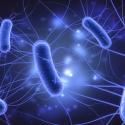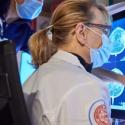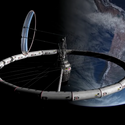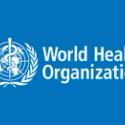Science Is Essential
Science touches so many aspects of modern life that it's hard to keep up. Through our programs and this website, Science for the Public provides up-to-date information about scientific innovations, discoveries, and issues that are shaping modern knowledge.
Coming Events
No events are scheduled for June or July
Recent Events
Space Debris Alert!: The Potential Impact on the Ozone Layer and Earth’s Climate
05/27/25 (rescheduled from April) Thousands of satellites orbit Earth. At the end of their missions, they drop into and burn up in the stratosphere, depositing ash that contains oxides and pollutants that are affecting both the ozone layer and the planet's climate. Atmospheric scientists are working to analyze the aerosols and their worrisome impact. Daniel Cziczo
The Brain-Computer-Interface Paradox
05-20-25 For individuals paralyzed by injury, stroke or ALS, brain-computer-interface (BCI) devices can enable movement and even speech. However, there are concerns: specifically, that such technology could be developed for mind control. Lukas Meier
Cancer Research: How It Works and Why It's Crucial Today
04/08/25 Numerous types of cancer are increasing today and scientists are trying to identify the causes. That's why cancer research is one of the most important concerns of modern science. We learn how the research is done and also why federal funding for this work is essential. Gerald Denis
Black Holes
Proof that massive stars would form black holes was rejected because of bias.
Resistance to New Ideas
Many of the most important advances in scientific understanding were initially rejected or ignored.
Life: Origins of Life
The necessary ingredients and conditions; formation of life's molecules; Last Universal Common Ancestor (LUCA) ....
Featured Items
Using Gravitational Lensing to Detect Dark Matter
01/14/25 Dark matter accounts for some 27 percent of the universe but is invisible. One promising technique to reveal it is the analysis of gravitational lensing that very occasionally aligns galaxy clusters. Jacqueline McCleary
Is Earth Exceptional?
02/18/25 Is there life beyond Earth? So far, despite the discovery that there are billions of planets in our galaxy, and our increasingly sophisticated probes for life, we still don’t know. Life and the conditions for its emergence are both very complex phenomena. Mario Livio
Heads Up! Surprising Stats
Science for the Public is committed to improving public knowledge of science and public appreciation for the contributions of science to social progress.

Exoplanet Atomospheres
12/02/14 How do scientists investigate exoplanet atmospheres --and what are they discovering? Mercedes Lopez-Morales

All about Jellyfish
08/10/20 Get the real facts about those about lion's mane jellyfish near Massachusetts beaches, but get the real science about jellyfish in general: their amazing biology and their role in marine ecosystems. Laurence Madin

Microbe Evolution
02/12/13 How microbes and their communities evolve and what the process means for us. Christopher Marx

Vital Ocean-Atmosphere Dynamics
01-10-23 An explanation of one of the most important factors in our planet's climate: ocean-atmosphere relationship. Amala Mahadevan

Analyzing Clouds and Climate Change
09/26/23 Clouds protect the planet and play an essential role in climate dynamics. How will the rapidly heating planet affect that relationship? Daniel Cziczo

The Bionic Leaf: Clean Energy for All
08/02/22 A unique innovation based on photosynthesis, the bionic leaf can potentially produce energy and fuel inexpensively --and in a localized manner. Daniel Nocera

The Great Potential of Offshore WInd Farms
05/07/19 How effective are offshore wind farms in nations that have developed them, and why has the US been especially slow to adapt such an important energy resource?
Andrew Myers
Today's Featured Contributors
Featured Author

Daniel Fornari, Ph.D.
A distinguished geophysicist who has been instrumental in discoveries of deep-sea volcanoes and other ocean ridge geological phenomena.
Featured Guest

Betul Kacar, Ph.D.
A dynamic researcher in the young field of paleogenomics reconstructs evolution
As a world society, it seems clear that we have arrived at a point in our history when there must be a major increase in the capability of ordinary people to cope with the scientific and technological culture that is shaping their lives and the lives of their children.
—Leon Lederman, Nobel Laureate in physics





















